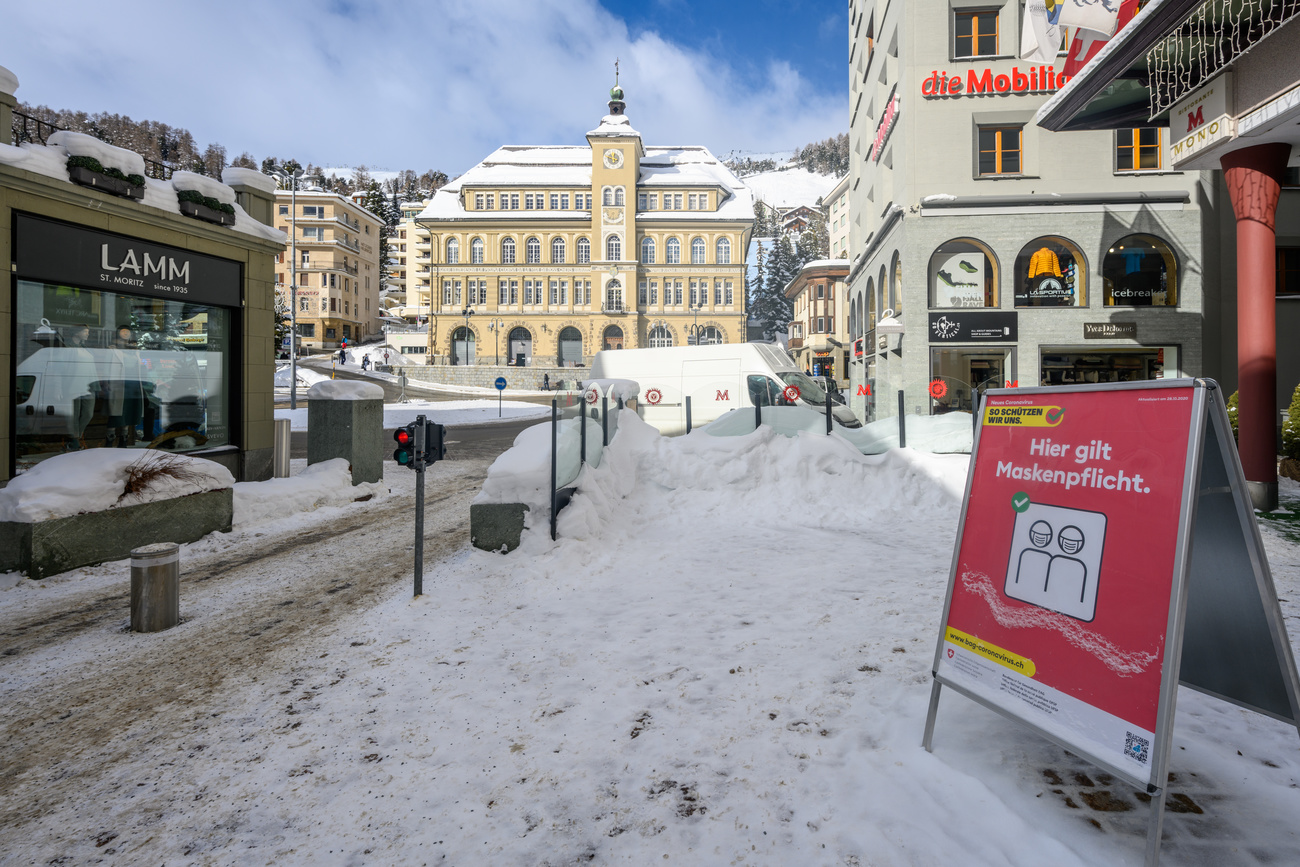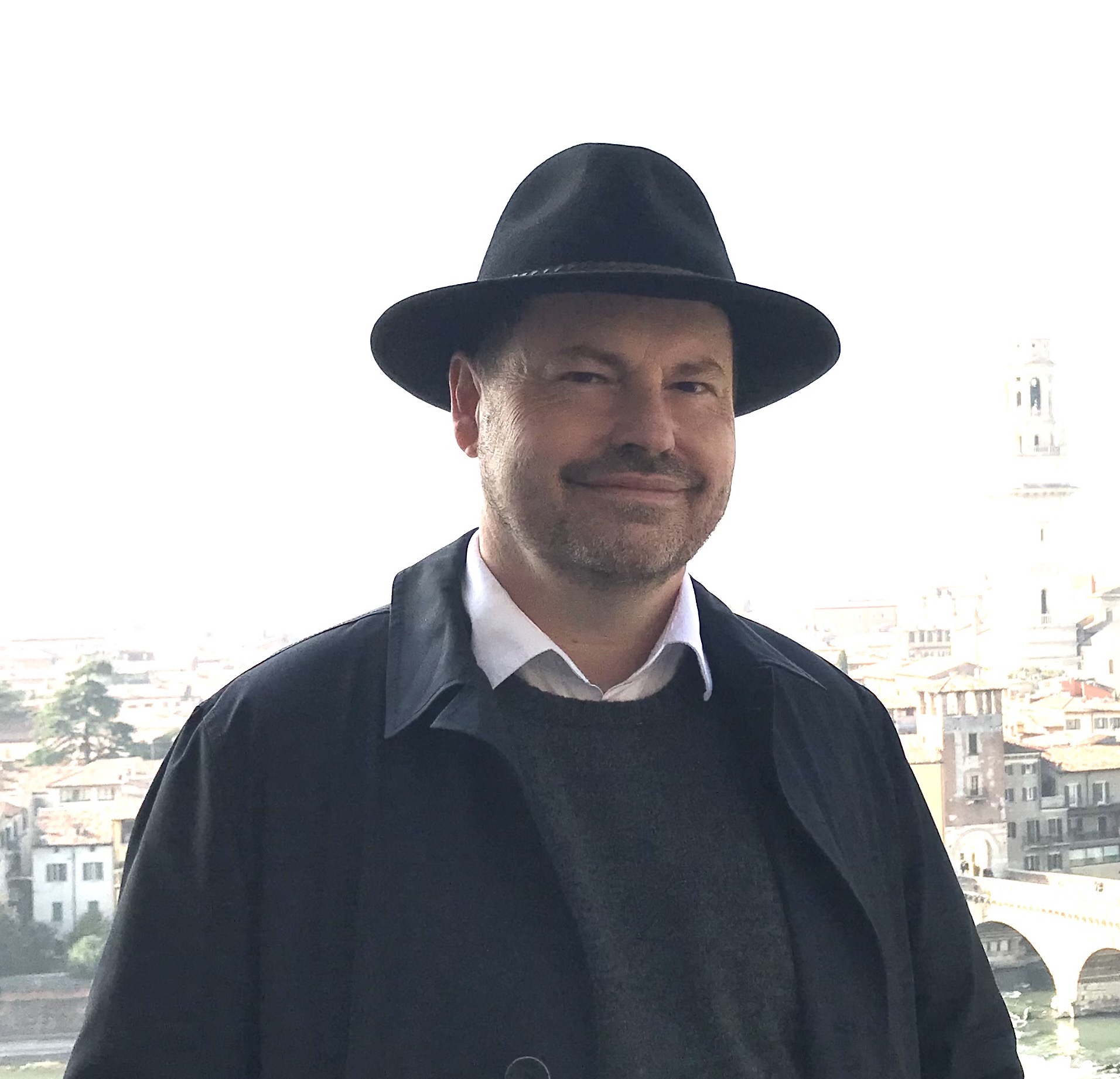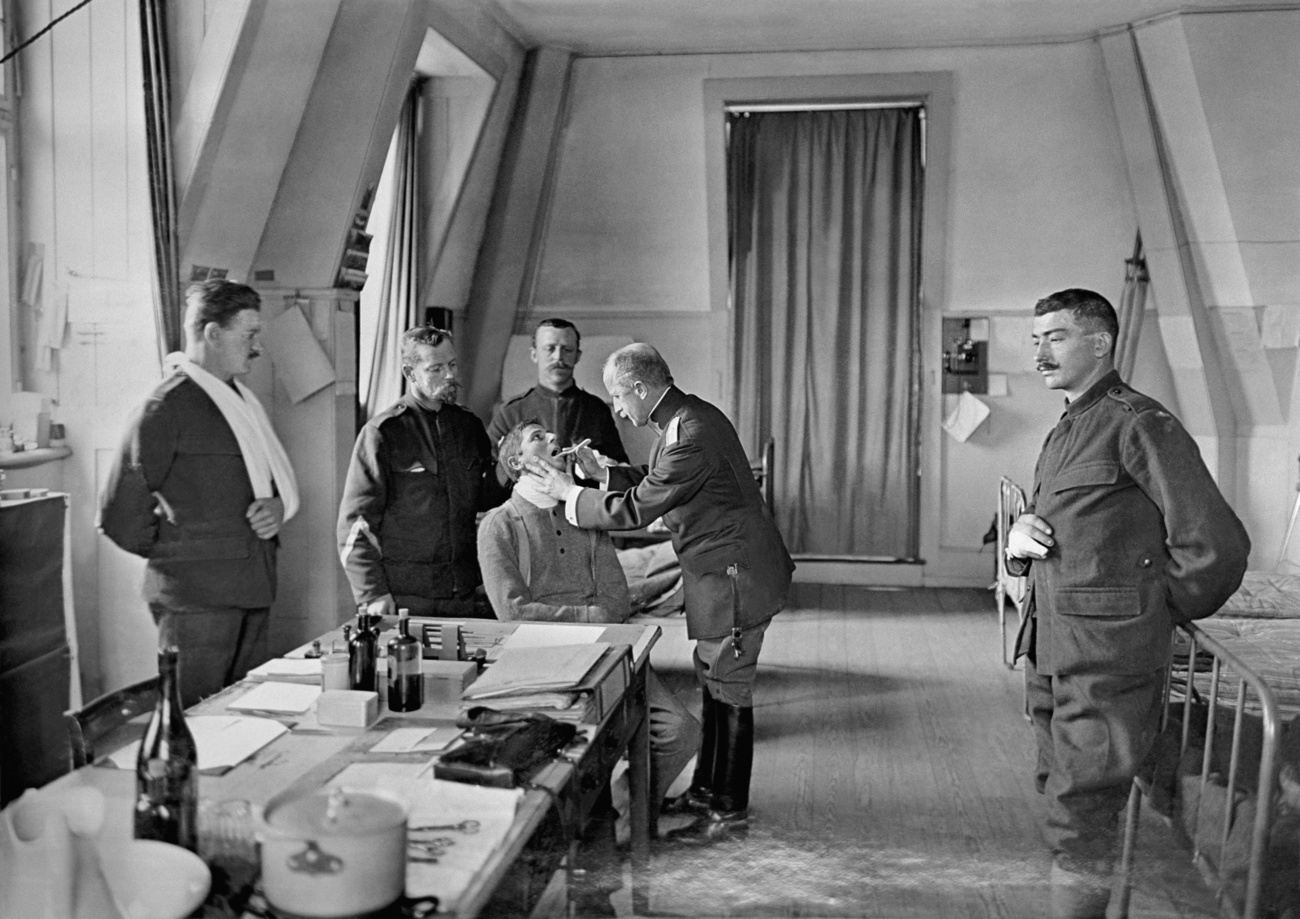
Epidemics change, but fear remains

Medical advances have made us almost forget that the West has lived under the threat of epidemics for centuries. The coronavirus pandemic, however, is a reminder that humanity remains vulnerable. According to Alain Bosson, a Swiss medical historian, it has also awakened old fears.
For nearly two years the pandemic has affected society: measures such as lockdowns and vaccinations meant to contain the disease have divided opinion. Yet this is not the first time that the world has been confronted with serious epidemics. To what extent can current events be assessed in the context of those of the past? Alain Bosson, a medical historian, gives us some answers.
SWI swissinfo.ch: What is the main reference point for epidemics from a historian’s perspective?
Alain Bosson: It’s the plague in the Middle Ages. Western Europe had been spared the plague since the 6th century but experienced a first apocalyptic episode from 1347 to 1351. In some regions, the plague killed between a third and half of the population. The epidemic then returned time and time again until the 18th century.
Those waves of the plague forced governments to act. Some measures, like isolating the sick, quarantining and travel restrictions, tended to reduce its impact. So it became common practice to react in the same way to other epidemics. In other words, for historians, this is nothing new. We’re now reliving concerns and behaviours typical of what was experienced in the past.

SWI: The current pandemic is often compared with the Spanish flu at the end of the First World War. How are the two similar, and how are they different?
A.B.: Both are pandemics – that is, epidemics that spread rapidly around the world, which was not the case with the plague. The scale of the phenomenon is also comparable. In Switzerland, for example, we estimate that between a third and half of the population caught the Spanish flu between 1918 and 1920, which makes for a very high morbidity rate, much worse than for the coronavirus.
But where the similarities end is that the Spanish flu was far more worrying. At the time, people had no idea what they were facing, because they didn’t know about viruses then. At first, some people even thought it was a form of plague. Today, we know a lot more about the coronavirus, even though there are still grey areas.
But above all, the mortality rate [for the Spanish flu] was much more serious and mainly affected people aged 20-35, and not the elderly, as seems to be the case with the coronavirus. If you read the newspapers of the time you come across terrible tragedies where the father and mother die, while the children and grandparents survive. Here too, the phenomenon was much more worrying than today, because it decimated much younger sections of the population.

More
Swiss note many parallels between Covid-19 and Spanish flu
SWI: Having said that, it seems we are more panicky now than a hundred years ago.
A.B.: We live today in modern or post-modern societies where health is very important. Families pay a lot of money for health insurance, and these expenses are in line with what we expect from the healthcare system.
At the beginning of the 20th century, life expectancy was 45 to 50 years, whereas today it is over 80. In the past, the hazards of life, like childbirth and childhood diseases, took a heavy toll on people. After that, there were again significant mortality thresholds around the age of 50. You could call it fatalism, but we lived more with the idea of dying.
This doesn’t mean that people were completely immune to suffering. The Spanish flu was very frightening because people were dying in terrible pain. People were very worried, but they dealt with it. Nowadays, we react much more strongly, but this is a reflection of our society. Death has become almost taboo.
SWI: Some people refuse vaccination or are even hostile to it. Has this always been the case or is this a new phenomenon?
A.B.: There was some form of resistance from the start. In Europe, the beginnings of vaccination were aimed at controlling smallpox, a terrible disease that killed tens of millions of people over the centuries. Vaccination was aimed at inoculating against a weaker form of the disease – cowpox. It was a miracle solution, but people still didn’t know much about viruses and the method was based on good intuition, without any scientific validation. There was simply an observation made that inoculation stimulated the immune system. The procedure was not risk-free – it took courage to be vaccinated in the 19th century.
It was Louis Pasteur’s work on the rabies vaccine that provided a clearer picture and paved the way for modern immunology. But despite this discovery, the first attempts to develop a vaccine against tuberculosis – by Robert Koch in Germany – were unsuccessful and caused deaths. So the history of vaccination has been marked by risks and uncertainties that remain in our collective unconscious.

More
Switzerland imposes entry restrictions to combat new Covid variant
SWI: This may be why it’s difficult to impose vaccine mandates.
A.B.: The only time the Swiss government tried to introduce a vaccine mandate was in 1879 with a federal law on epidemics. But there was a referendum and in 1882 the law was rejected by almost 80% of voters, mainly because of the mandatory element of vaccination.
There were also attempts to make vaccination compulsory in some cantons. Fribourg, for example, introduced it in 1872. But there was so much reluctance – only a small proportion of the population ended up being vaccinated – that the measure was quickly abandoned.
We can assume that this has permanently “vaccinated” the authorities, so to speak, against any idea of making vaccination compulsory. Vaccination remains a medical measure for which patient consent seems to be unavoidable.
SWI: But vaccination is also a success story.
A.B.: After the Second World War, polio and smallpox were eradicated. These are extraordinary achievements that must be placed in their historical context – medicine was at its peak. We also witnessed, for example, the first heart transplant by Professor Barnard in 1967. People believed that [medicine] could cure almost anything. There was a lot of support and a high degree of trust in medicine among the population.
But this trust declined in the 1980s with the AIDS epidemic which, in a way, reminded us of the limits of medicine. It was also around this time that therapeutic remedies were being presented as more natural. For example, we have the opening of birthing centres so women can avoid the hospital. At that time there was also growing mistrust of vaccination among advocates of natural medicine.
SWI: Is it also around this time that people began questioning more the expertise of doctors and health authorities?
A.B.: Yes. Until the 1980s, when medical professionals spoke, people listened. In the 1960s, it was unthinkable for the media to question a specialist’s word. In general, people didn’t challenge what health authorities had to say.
Nowadays, we have the impression that any scientific fact is bound to be turned into a public debate. In the case of vaccination, we are reduced to questions like, “Do you believe in the effectiveness of vaccines?” It’s certainly good that we don’t take everything at face value and that we are more critical than we used to be. But it’s a problem when there are clearly established facts in science and people who invite themselves into the debate don’t have the means to challenge them.

More
Coronavirus: the situation in Switzerland

In compliance with the JTI standards
More: SWI swissinfo.ch certified by the Journalism Trust Initiative































Join the conversation!